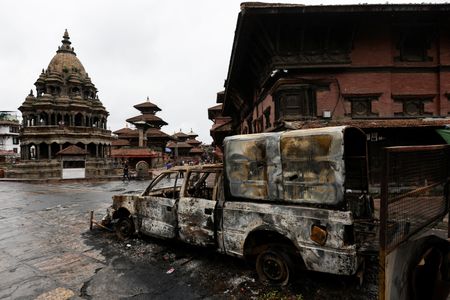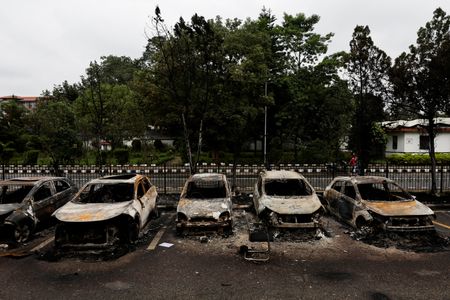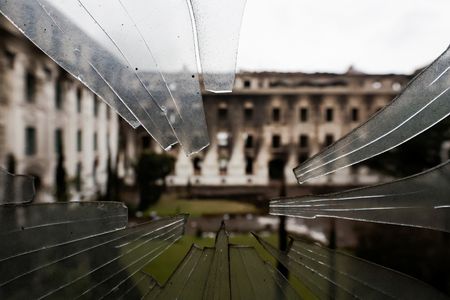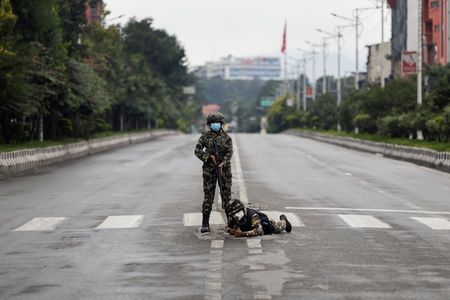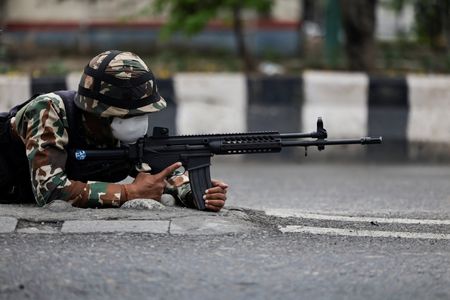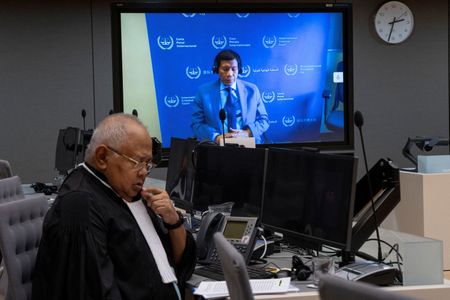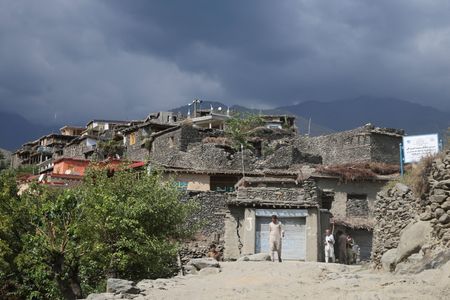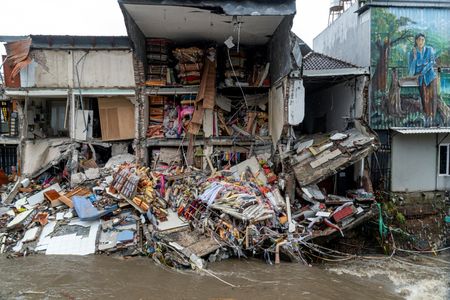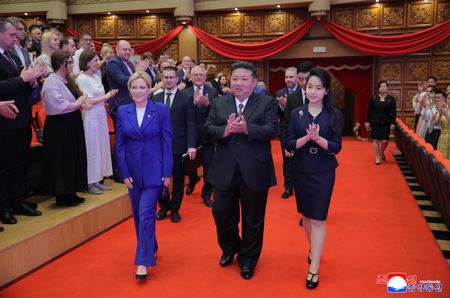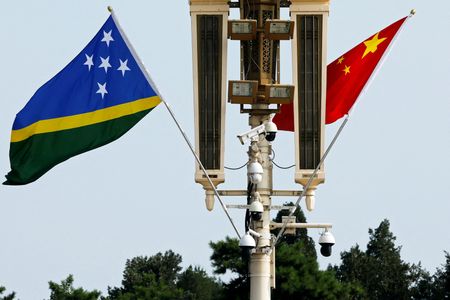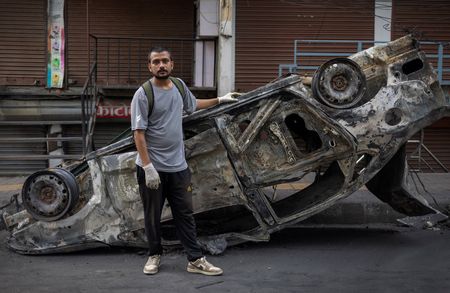By Gopal Sharma, Aftab Ahmed and Sarita Chaganti Singh
KATHMANDU (Reuters) – Nepal’s “Gen Z” protesters backed the country’s first female chief justice to temporarily lead the troubled nation and called for parliament to be dissolved on Thursday, two days after deadly demonstrations forced the prime minister to quit.
Sushila Karki, 73, who was the first woman to be appointed Nepal’s chief justice in 2016 and is now retired, has been the frontrunner to become interim leader of the impoverished Himalayan country, which is wedged between India and China.
Her name had been proposed to the president and army by those leading the protests, a representative of the protesters, Ojaswi Raj Thapa, told reporters.
“We will dissolve the parliament. We are not trying to dissolve the constitution,” Thapa said. “We may need some changes to the constitution but we don’t want to dissolve the constitution.”
The demonstrations, popularly referred to as the “Gen Z” protests as most participants were in their teens or early 20s, triggered Nepal’s worst upheaval in years, forcing K.P. Sharma Oli to resign as prime minister on Tuesday, a day after 19 protesters were killed in violence.
The death toll has since risen to 34 and more than 1,300 were injured, Nepal’s health ministry said.
Soldiers continued patrolling the quiet streets of Kathmandu on Thursday, and shops, schools and colleges remained shut. Some essential services in the city had resumed.
Karki has agreed to become interim leader, but efforts were being made to find a constitutional route to appoint her, a source familiar with the matter told Reuters, speaking on condition of anonymity.
Local media reported that Karki was in talks with President Ramchandra Paudel and army chief Ashok Raj Sigdel.
Paudel said he was making every effort to resolve the “current difficult situation” within the constitutional framework and to protect democracy and maintain peace and order.
“I appeal to all parties to be confident that a solution to the problem is being sought as soon as possible to address the demands of the agitating citizens and to cooperate with restraint in maintaining peace and order in the country,” he said in a statement.
‘FEARLESS’ LEADER
“We see Sushila Karki for who she truly is — honest, fearless, and unshaken,” said Sujit Kumar Jha, a 34-year-old company secretary.
However, another source who declined to be named said protesters were still seeking to reach a unanimous decision and that not everybody backed Karki’s candidacy.
Karki did not respond to telephone calls from Reuters to seek comment. An army spokesperson did not immediately respond to a request for comment.
Earlier on Thursday, the spokesperson, Raja Ram Basnet, had told Reuters, “Initial talks are on and will continue today,” referring to the discussions on an interim leader. “We are trying to normalise the situation slowly.”
Prohibitory orders imposing a curfew would stay in Kathmandu and surrounding areas for most of the day, the army said in a statement, while an airport spokesman said international flights were operating.
The demonstrations, triggered by a social media ban that was later revoked, were also viewed as young people voicing frustration at the government’s perceived failure to fight corruption and boost economic opportunities.
Government buildings, from the Supreme Court to ministers’ homes, including Oli’s private residence, were set ablaze in the protests, which only subsided after the prime minister resigned.
Businesses set on fire included several hotels in the tourist town of Pokhara and the Hilton in Kathmandu.
(Reporting by Gopal Sharma; Writing by Shilpa Jamkhandikar; Editing by Clarence Fernandez, YP Rajesh, Gareth Jones and Alex Richardson)

